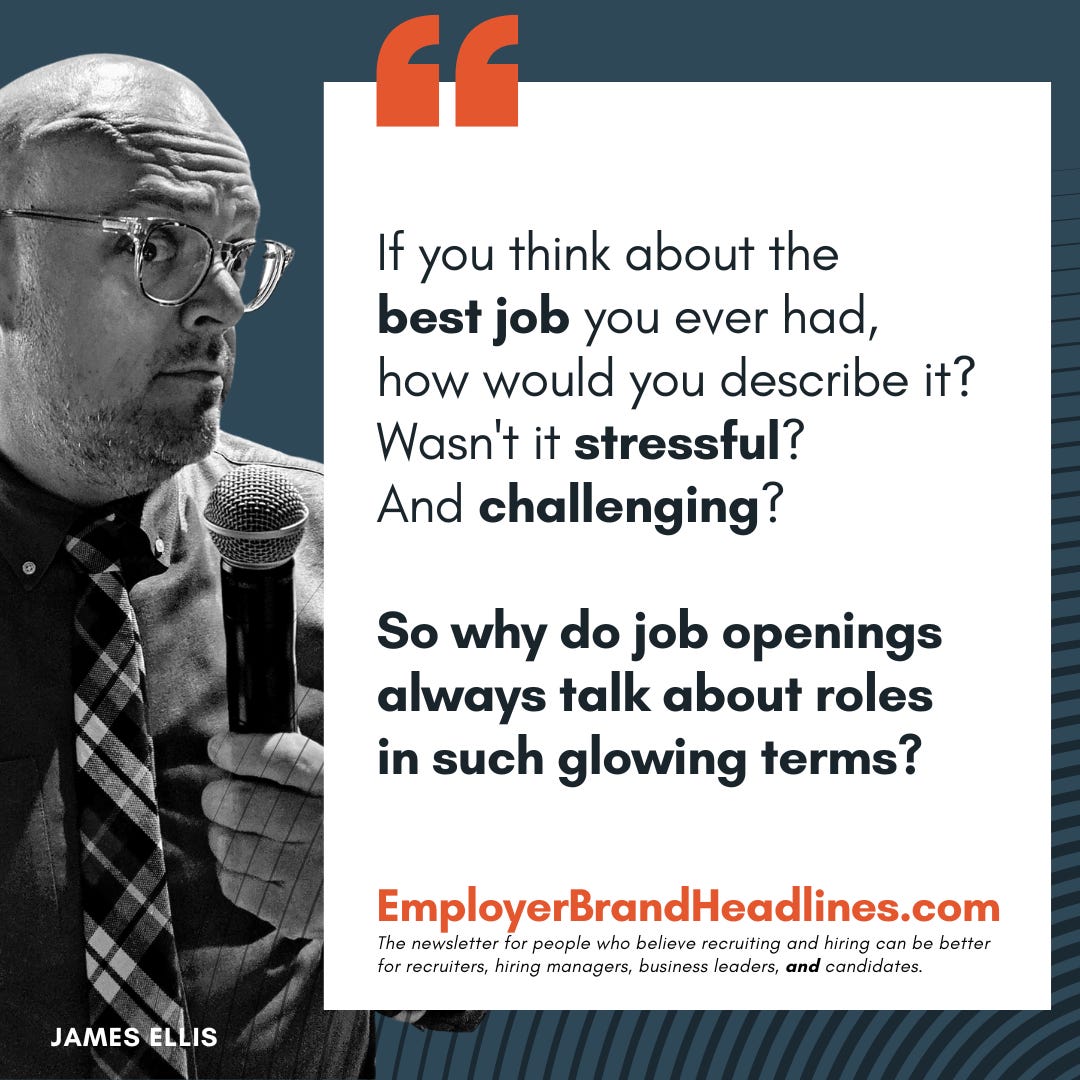What was your best job?
How would you describe it?
What made it the best job?
For people who have developed valuable skillsets, who have useful experience, who have ambition, who have achieved things (i.e. EXACTLY the kind of people you want to attract, engage, and hire), when they think back on their best jobs, they were not easy.
They were not 100% fun.
It would probably be accurate to call those jobs “tough.” Or “challenging.” Or “the thing that took over my life for two years.”
How many of you have one of those jobs, where you could reasonably say, “it was all-consuming, stress-inducing, and kept me up nights… and I miss it”?
I would bet a lot of you.
It’s common that people who are great at what they do get that way because of a job they look back upon fondly as “semi-brutal.”
One might go so far as to say that the most important job of anyone’s career was the job they loved and hated. It was at once their best and worst job ever.
So why, when trying to attract great talent, do we shy away from the unpleasantries?
Why do we only show the nice parts?
Why are our career sites filled with happy, shiny people?
If you were buying shoes to work out in, would you be swayed by a commercial showing people hanging out on the couch? That would be some pretty lousy messaging.
So how come when we are showing off your jobs, we’re either listing requirements or talking about how “great” the job is?
Why don’t those jobs ever sound like your memory of your past “best job?”
It feels like a missed opportunity.
++++
Tomorrow, I’m hanging out with UBS’s Jonna Sjövall (who once hired me and immediately quit her job, which we probably won’t talk about on this webinar… or maybe we will? Drama!) to talk about getting your C-suite to take talent strategy seriously.
Register for JobSync’s free webinar here: https://www.jobsync.com/rmrt-register
***This Newsletter Contains No ChatGPT***
###






What you describe has long been a core tenet of US Marine Corps recruiting. They emphasize the difficulties and challenges of being a Marine, because they only want people who are willing to do what it takes to overcome challenges as recruits. Check out their careers website at marines.com to see what I mean.